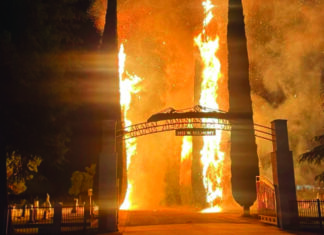Rep. Schiff, Filmmaker Garapedian Delight Capacity Crowd

By Andy Turpin
Mirror-Spectator Staff
BOSTON — On April 23, the annual State House commemoration of the Armenian Genocide featured a double-bill of documentary filmmaker and journalist Carla Garapedian and Rep. Adam B. Schiff (D –CA), a member of the House Caucus on Armenian Issues, who for years has supported the passing of the Armenian Genocide resolution in Congress.
“It’s wonderful to be home. I feel at home whenever I’m in the arms of the Armenian community,” Schiff said. It was a true homecoming for Schiff, who hails originally from Framingham, Mass.
He thanked state Rep. Peter Koutoujian (D – Newton) for his support and friendship and spearheading the organizing of the day’s ceremony.
Schiff said of the Genocide’s early days that, “It began with the rounding up of intellectuals in 1915…We can’t imagine the horror, but we can imagine the questions these individuals must have asked, ‘Who will speak for us in the world?’”









